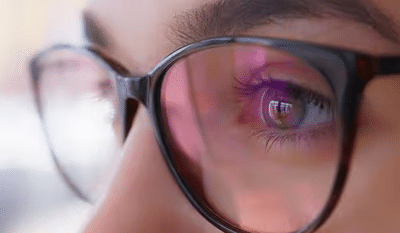
According to a report by the US National Institute of Health, people who eat food high in sodium and fat have a higher risk of cataracts than those who eat healthy food.

With advancing age, various eye problems begin to develop. Cataracts are considered a common problem. In this disease, the natural lens of the eye gradually becomes cloudy, leading to poor vision. Age and genetic factors are generally considered responsible for this. However, doctors say that diet and lifestyle also have a significant impact on eyesight. According to a report by the US National Institutes of Health, people who eat foods high in sodium and fat are at greater risk of cataracts than those who eat healthy foods. Let us now explain how poor eating habits affect eyesight and what foods you should avoid.
Processed and fried foods may increase the risk of cataracts.
Unhealthy fats found in foods like fried chicken, packaged snacks, chips, and fast food negatively impact eye cells. These fats increase oxidative stress and inflammation, weakening the proteins in the eye lens and blurring your vision. Replacing these fried and processed foods with fresh vegetables, whole grains, and protein-rich foods can better protect eye cells from free radical damage.
Excess sugar is also a danger to the eyes.
Sugary foods and drinks raise blood sugar levels. Long-term consumption of these foods damages the proteins in the eye lens, leading to gradual blurring of vision. These sugary foods include soda, candy, pastries, and flavored yogurt, which can be harmful to the eyes. In this case, you can avoid them and eat natural sweets like fruit.
Red and processed meat are also a risk to the eyes.
Eating foods like beef, sausage, hot dogs, and bacon over a long period of time increases oxidative stress in the body. The saturated fats, chemicals, and preservatives present in them affect eye and heart health. If you can't avoid these foods, you can replace them with chicken, fish, lentils, or other plant-based proteins, which are also beneficial for your eyes.
Excessive salt is also a danger to the eyes.
Salt disrupts the body's fluid balance, which can disrupt the fluid balance in the lens and cause blurring. Therefore, avoid high-salt foods like canned soups, frozen dinners, deli meats, and snacks. Instead, home-cooked meals with fresh spices or herbs are beneficial for the eyes.
Refined food and excessive alcohol are also risk factors.
Refined foods like white bread, pasta, and pastries rapidly raise blood sugar, triggering the same glycation process that sugar causes. Drinking too much alcohol dehydrates the body and increases oxidative stress, which can damage the lens. Therefore, whole grains, adequate water, and moderate alcohol consumption are better for the eyes.
-
Why throwing shoes could be safer than violence: Lessons from CJI incident

-
The Poms were here, pomp was not: Why Starmer’s India trip feels less spectacular than past royal-style British PM visits

-
Move over Bordeaux, Tuscany, Chile, Napa & Yarra Valley, Bhutan's uncorking its wine

-
From clay pots to Cannes: When Sandhya really did show the day

-
Pass-portals Unlocked: Why high net-worth Indians are leaving for foreign passports
